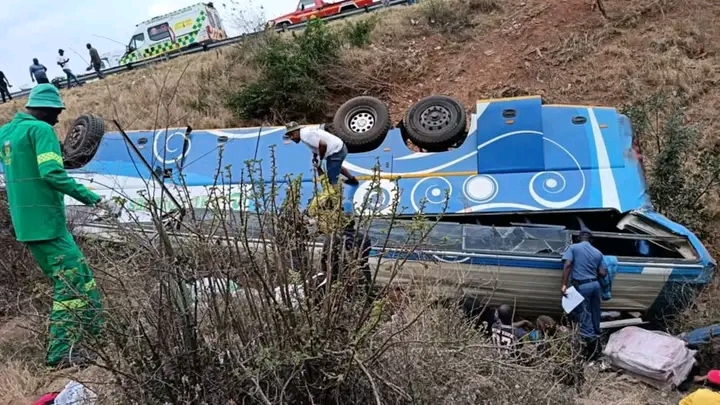The recent bus accident in Makhado, South Africa, which claimed the lives of 42 Zimbabweans, is a painful reminder of the country’s deep-seated economic and transport challenges. The incident, which involved a bus overloaded with passengers, highlights the need for stricter enforcement of traffic regulations and improved oversight of public transport operators.
However, the issue goes beyond road safety. The large number of Zimbabweans who lost their lives in this accident is a stark indication of the economic crisis that has been plaguing the country. Many Zimbabweans are forced to seek opportunities abroad, often under precarious conditions, due to the country’s economic woes.
The Human Cost
“Economic crises is pushing us to do this cross-border business and shopping. Imagine it’s not only accidents we face. Many of us have been robbed, kidnapped, raped, and all sorts of inhuman treatments. I pray for a better Zimbabwe,” said a woman in Hatcliffe, Harare. Her words echo the desperation and vulnerability of many Zimbabweans who are forced to venture into cross-border activities in search of a better life.
The Risks and Challenges
The drivers who operate these cross-border routes often face numerous challenges, including long hours, harsh weather conditions, and the risk of accidents. Despite these challenges, many drivers are known for their professionalism and dedication to their work.
“The drivers who died in the accident were very good in handling passengers. Most of my property you would just send they would deliver,” said another man in Harare, paying tribute to the drivers who lost their lives in the accident.
The Need for Comprehensive Solutions
Declaring a state of disaster is not enough; the government needs to address the root causes of the economic crisis. This includes implementing economic reforms, promoting investment, and creating jobs. Additionally, the government needs to prioritize road safety by enforcing traffic regulations, improving infrastructure, and promoting public transport safety.
Safety Net for Road Accident Victims
Unlike South Africa, which has a well-established Road Accident Fund (RAF) to provide financial compensation to victims of road accidents or their dependents, Zimbabwe is still in the process of establishing a similar fund. The proposed Road Accident Fund Bill aims to provide compensation to victims of road traffic accidents, covering medical expenses, funeral costs, evacuation services, and support for long-term injuries.
Call to Action
The government, policymakers, and stakeholders must work together to address these challenges. This includes:- Implementing economic reforms to stimulate growth and create jobs- Prioritizing road safety through stricter enforcement and infrastructure improvement
Providing support to vulnerable populations, including those affected by accidents- Finalizing and implementing the Road Accident Fund Bill to provide a safety net for road accident victims
By working together, we can create a safer and more prosperous future for all Zimbabweans.
About the Author:
Bigboy Madzivanzira is a Health Promotion Practitioner registered with the Allied Health Professions Council of Zimbabwe, a Medical Rehabilitation Practitioner registered with the Medical Rehabilitation Practitioners Council of Zimbabwe, a Family Therapist, and a Freelance Journalist accredited by the Zimbabwe Media Commission. He can be contacted on 0773367913, Email: healthpromotionclinic@gmail.com
